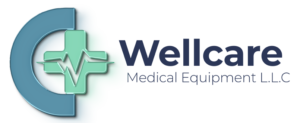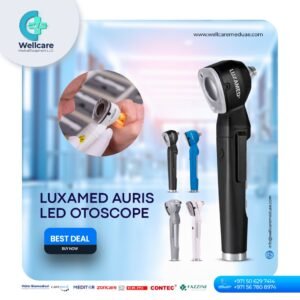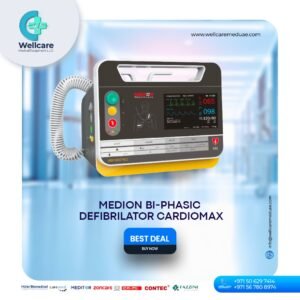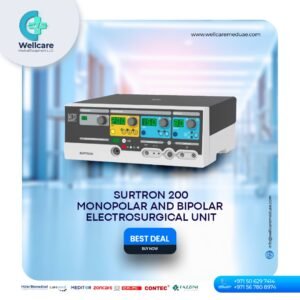Medical equipment holds paramount importance in the UAE for several reasons. The country's healthcare system is highly advanced, aiming to provide world-class medical services to its residents and visitors. The strategic acquisition and utilization of cutting-edge medical equipment contribute significantly to achieving this goal. These technologies enable healthcare professionals to deliver accurate diagnoses, effective treatments, and comprehensive care. Advanced imaging equipment, for instance, allows for early detection of diseases, significantly improving patient outcomes. High-quality surgical instruments and devices enhance the precision and safety of medical procedures, reducing the risk of complications and accelerating recovery times. Furthermore, the UAE's emphasis on medical tourism necessitates maintaining the highest standards in healthcare, attracting patients from around the world who seek superior medical treatment. This influx of international patients not only boosts the economy but also fosters a reputation for excellence in healthcare services. Additionally, the availability of sophisticated medical equipment supports ongoing medical research and development within the country, facilitating innovations and advancements in medical science. It also ensures that healthcare providers remain at the forefront of technological advancements, capable of addressing a wide range of medical conditions with the latest tools and techniques. Overall, the presence and continuous updating of medical equipment in the UAE underscore the nation’s commitment to health and well-being, contributing to its status as a leading hub for medical excellence in the region.
Enhanced Patient Care: Advanced medical equipment allows healthcare providers to deliver high-quality care, ensuring accurate diagnoses and effective treatments. This leads to better patient outcomes, shorter hospital stays, and reduced recovery times.
Early Disease Detection: Sophisticated diagnostic tools, such as MRI and CT scanners, enable the early detection of diseases. Early intervention often results in more successful treatment outcomes and can prevent the progression of serious conditions.
Increased Medical Tourism: The UAE’s investment in state-of-the-art medical equipment attracts international patients seeking advanced medical treatments. This boosts the economy and reinforces the UAE’s reputation as a premier destination for medical tourism.
Support for Medical Research and Innovation: Access to the latest medical technologies fosters research and development within the country. This leads to medical innovations and advancements, positioning the UAE as a leader in medical science.
Improved Healthcare Accessibility: Modern medical equipment enhances the capabilities of healthcare facilities across the UAE, ensuring that residents and visitors have access to high-quality medical services. This contributes to a higher standard of health and well-being for the population.
Professional Development: The presence of advanced medical technologies provides healthcare professionals with opportunities for continuous learning and professional development. This ensures that the medical workforce remains skilled and knowledgeable about the latest advancements in healthcare.
Economic Growth: The healthcare sector’s expansion, driven by the adoption of advanced medical equipment, contributes to economic growth. It creates jobs, stimulates investment, and drives the development of related industries.
National Health Security: Equipped with advanced medical technologies, the UAE is better prepared to respond to public health emergencies and pandemics. This enhances the country’s health security and resilience against potential health threats.
Does Well Care operate across the entire UAE?
Yes. Well Care provides delivery and support throughout all emirates, including Dubai, Abu Dhabi, Sharjah, Ajman, Fujairah, Ras Al Khaimah, and Umm Al Quwain.






